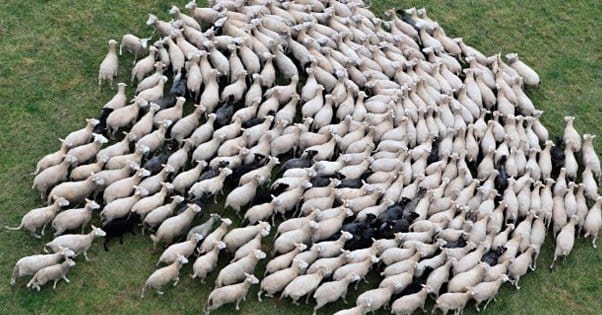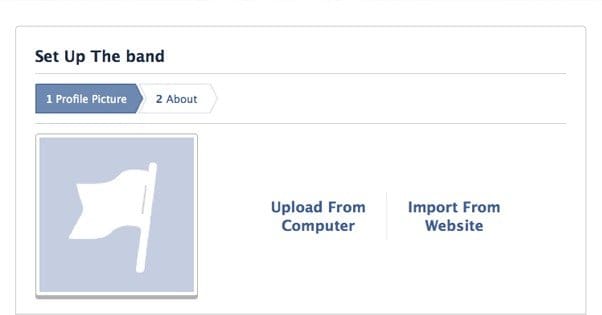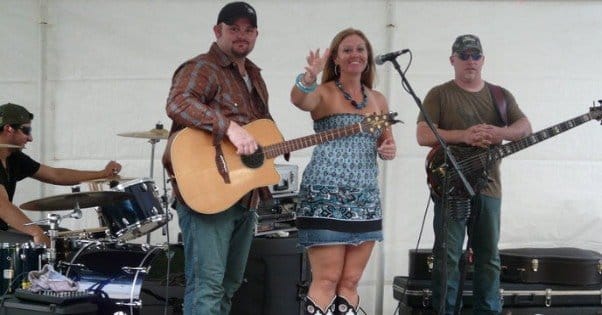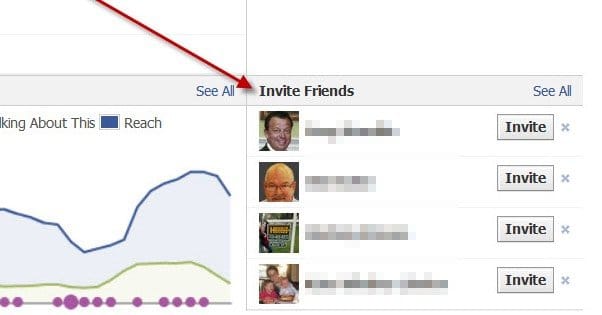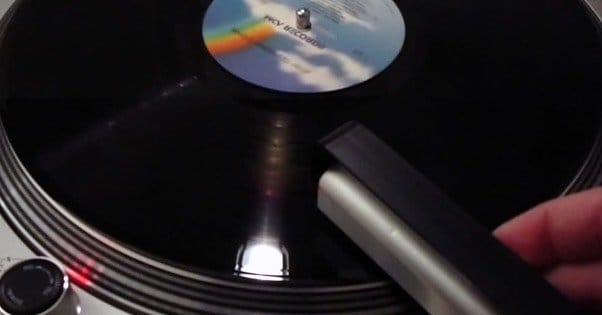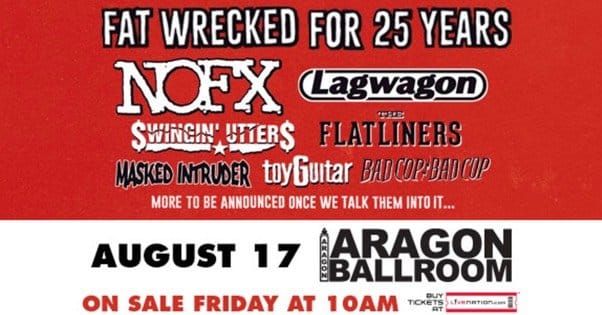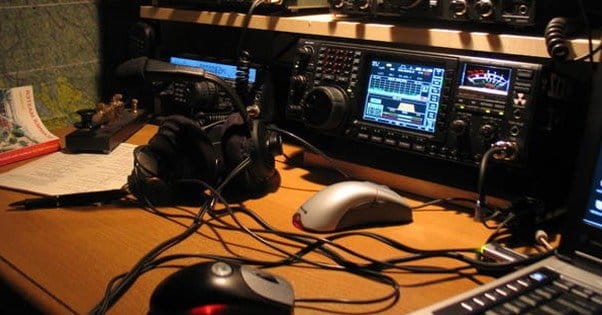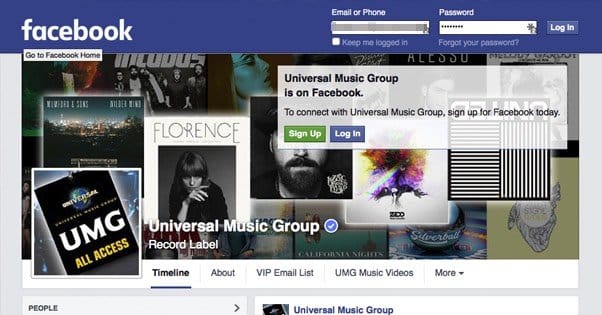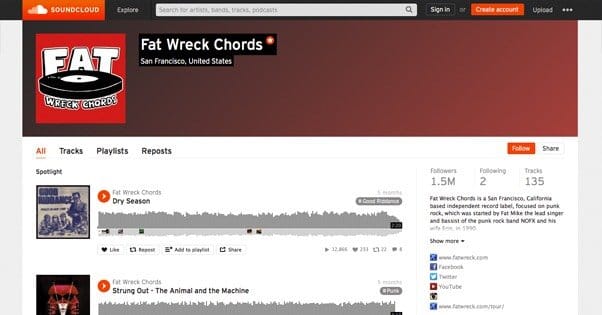 Written by ContentPowered.com
Written by ContentPowered.com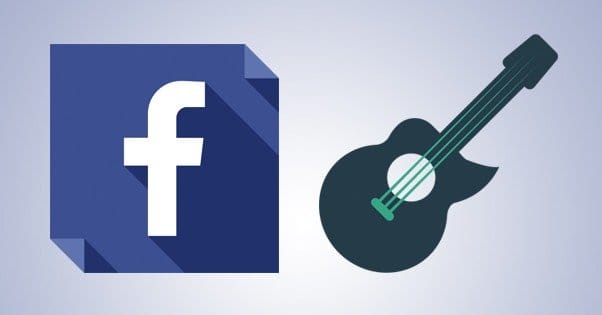
I know a few people who still seem to think the best social network for bands is MySpace. It’s true that the old site did reinvent itself to cater to bands, but that doesn’t mean anyone really pays much attention to it. Nearly everything MySpace can do, Facebook can do, and better. Combine it with a little marketing know-how and a few other networks and you never need to think about the old site again.
The end goal of pretty much any band is to make it big. There aren’t many musicians who aren’t in it for the potential fame and glory, money and lifestyle. I’m here to tell you that Facebook can be your gateway to the big time, if you make use of it properly.
Yes, a lot of bands already use Facebook. Competition can be fierce at times, particularly in cities with a large local music scene. On the other hand, a lot of bands use Facebook in a minimalist way. It saves more time for their music, sure, but it doesn’t actively put Facebook to work for them.
You Need Attention
Bands grow on the strength of their audience, of their fans. Everyone starts out somewhere, and most of the time, that somewhere is a garage with a few friends out front. You grow from there; house parties, local clubs, larger local venues, and shows you travel to at festivals around your area. It’s hard to get gigs, especially paying gigs, if you have nothing to show for your music.
In this digital age, you can at least take advantage of platforms like SoundCloud and YouTube to showcase your past events and your music. How can you showcase your audience? That’s where Facebook comes in.
Build a Crowd with a Crowd
There’s a concept in sociology called crowd psychology. It’s pretty simple to understand. When someone is walking by and they see a crowd, they get curious. They want to see what’s up with the crowd; why are they gathered, why are they here, what are they doing?
This works great to grow and build an audience. The best way to grow a crowd is to start with a crowd and broadly accept others who come by. The best time to do this is when you’re still a relatively small band, when you can put on free shows in a public park or a house party, where you don’t have a ticket-based barrier to entry.
You can leverage Facebook to further grow your crowd, both with the initial show and the walk-ins. You can keep using Facebook to grow an audience out of people who can’t make it to shows, and you can use their presence and the popularity of your Facebook page to attract the attention of record labels. Check it out:
1: Fill Out a Page
The first thing you need to do as a band to find success on Facebook is, of course, create a band page.
Facebook has a specific type of page for bands, and it gives you access to a couple of neat little informational tabs you can use to keep track of your shows and events. We have a much more detailed guide for how specifically to create a page – and a website, if you don’t have one – over here.
One of the most important aspects of your page registration and configuration is going to be your chosen name. You want your name to be consistent across the various sites and locations you use it. Your SoundCloud name, your YouTube name, and your Facebook name should all match. You have a bit more flexibility with your website URL, which is good, because many of the common variations have been taken already.
2: Upload Interesting Media
Facebook is becoming a more and more media-heavy platform, more so now with their focus on video than in the past. This is great for bands! You can post pictures and upload videos, and you can link to songs on SoundCloud.
- Post pictures of your shows, specifically showcasing the sort of crowds you can gather, so you give the impression of popularity.
- Post pictures of backstage, so fans get a glimpse behind the scenes, something they wouldn’t get anywhere else.
- Post promotional pictures that showcase upcoming shows, album releases, singles, and other important content.
- Post produced videos, music videos you’ve made to go along with your songs.
- Post impromptu videos, again showcasing live shows and showing off the scale and dedication of your audience.
Fans like to see media starring you and your band, so give them what they want. You’ll get people liking, sharing, and commenting on your content, which helps grow your exposure and expand your crowd.
3: Connect with Fans
When you’re starting a Facebook page, you can invite friends to follow you. You can do this with your personal profile, and you can upload a list of email addresses, if you happen to have one. Ideally, you will have a list left over from a mailing list, or registrations for some event or another, or even from album sales.
Facebook is a social platform, which means you have to do more than just post messages and let your fans follow you. You need to talk to them, ask them what they like, what they plan to do on weekends, what they think of your music, anything that comes to mind. Bands are unique among marketers on Facebook, because they can be quite casual in their communications without coming across as unprofessional. Musicians are just people like anyone else. This is a huge advantage on Facebook, because one of the things that turns people away from a page is overt marketing.
4: Polish Music and Solicit Feedback
Bands are evolving, growing things. Your music this year is different from what it was a few years ago, and you might not recognize yourselves if you were to see your music a few years down the road. A lot of it has to do with personal development as a musician. It also has to do with your ability to experience and be inspired by events in the world. You can be influenced by other upcoming musicians. It all leads to a constant trend of growth and change.
Facebook can help you influence this change by putting you in direct communication with your fans. You can experiment and post those experiments. I wouldn’t go so far as to post a few clips and tell your audience that the one they vote on will be turned into a song, but that is an interesting idea for an engaging contest if you can pull it off.
You can also use Facebook to network with fellow artists, producers, and music critics. Find people whose opinion is important and valuable, and ask them what they think. You can get quite a bit of useful feedback from this kind of interaction.
Of course, there’s also the purely technical aspect of polishing the sound quality of your recordings for posting online. Mixing and mastering are crucial to a high quality web presence, because users listening on a computer don’t have your charisma to convince them to like you.
5: Use Event Pages to Promote Shows
As a page, you can create event pages and invite everyone who follows your page to attend them. This is very useful, because you can create specific pages for shows coming up, whether they’re garage shows, fairs, or venue events. The only thing you have to watch out for is events with multiple bands at larger venues; these venues probably have pages of their own and are promoting the event independently. Rather than create a competing event page, follow and RSVP for their event page, and encourage your followers to do the same.
With events, graphic design is always useful. Events at larger venues tend to have a venue- or genre-inspired graphic poster for use, and you can share or post that image to show it to your followers.
The most important events are likely going to be the events you run, because they can show a talent scout specifically how much influence and popularity you have. Someone interested in signing your band to a label is going to want to see how much popularity you can leverage. They don’t want to sign a band that won’t make them any profit.
6: Run Contests for Tickets
This is a simple and somewhat obvious idea, but as a band, you can acquire a handful of tickets – or backstage VIP passes, or whatever other form of benefit you want to include – and give them out on Facebook. This is the ideal sort of Facebook contest.
One of the primary problems with businesses running contests on Facebook is choosing a prize. They need to choose something that attracts the people they want following their brand, not something that anyone at all would want.
For a band, tickets to a show are already items that are only valuable to people who like you as a band. Everyone who signs up for the contest will be interested in seeing you at a show, so you can be assured that the people following you for the contest will be people interested in your music.
7: Partner with Local Radio
Large corporate-run radio stations may be difficult to contact or partner with, but many of them will have much more casually administrated Facebook pages. Some of them might even have pages for specific DJs or shows, and that’s great; you can network with the DJs who like your music. Radio gives you access to people who regularly listen to music, plus all of the usual publicity from a radio contest you might be able to set up.
You can also look into sending demo tapes to much smaller independent stations. Local college radio stations always like to have the attention of musicians, and a unique in-studio performance or interview can go a long way towards boosting your popularity amongst the audience of that particular station. You can set all of this up online, because college stations almost always have Facebook pages and websites you can use for networking purposes.
8: Reach Out to Ideal Labels
Your end goal is to sign on with a record label for a contract that allows you to benefit from their ability to produce and promote your music. Their goal, of course, is to make money off of your audience and your popularity. That’s what building this Facebook presence is all about; showing a label that you’re popular, that you have an audience, that you can be lucrative for them to sign.
The first thing you want to do is create a list of the ideal labels you want to connect with. I recommend making a top five list of “pipe dream” labels, the big name labels that probably wouldn’t sign you, but who would make your career if they did. Don’t bank on success with them, but don’t ignore them because they’re high profile.
After that list, make a more reasonable list of labels in your genre that you think would be a good fit with your band.
Once you have these lists, it’s time to do a little detective work. You want to research the places where these labels exist online. Find their YouTube profiles, their SoundCloud accounts, their Facebook pages, and so forth. While you’re at it, look for their websites, their submission information, and their email addresses.
This is all basic information that should be readily available. Now it’s time to go the extra mile. Search out names of influential people inside the label. Look for the people who do interviews, and hunt down their contact information. You may be able to find them on Facebook and friend them, personal profile to personal profile. This can give you a route to communicate with influential label people while bypassing the traditional demo submission and inevitable ignore. Twitter is also a good venue for this sort of direct communication, but this article is dedicated to Facebook.
9: Continue to Grow to Attract Attention
At this point, you have everything in place. All you need to do is keep up your growth, both as a musician and as a brand. Build your audience, build your crowd, and use it to keep growing. Sooner or later, the networking you do with labels both directly and indirectly will attract their attention, and someone will bite.
With the process out of the way, I’m now going to give you a few more concerns to keep in mind as you implement it.
Consistent Branding:Facebook, Soundcloud, Twitter, YouTube, and Your Website
I mentioned this a little above, but you really need to make sure your branding is consistent across each platform you use.
This isn’t usually a problem for most bands, but some bands will find out that some business, another band, or just some individual with a different concept will have already registered your band name as a site. For the web, with domain names, you might be able to buy it. If not, you’ll want to make a variation. Add music or band to the end of your name, for a basic solution. Always shoot for a .com domain; the vanity .music might be amusing, but most people don’t really know it exists, and will end up typing .music.com, which won’t work.
Your social media accounts should all strive to use the same name, both for display and for username purposes. You want users to be able to find you and, more importantly, verify you are who they think you are on each site. You do this first with a consistent username. Beyond that, using your logo or the same picture for profile photo on each site is a good idea. You can also cross-link these sites, for further verification.
Labels are Businesses
Always remember that a record label is a business. From the smallest labels to the largest, they all have one thing in mind; profit. In order to profit, they need bands with good music, but more importantly, a good following. In a sense, it’s really just a gigantic popularity contest.
A label wants to make money from your music, and in order to do so, they have tools to promote, produce, and enhance your music. Your goal with signing on with a label is to access that promotion and those tools, so you need to give the label what they need; a popular band with good music. The music is on you; the popularity is what I’m helping you achieve.
Labels Receive Tons of Demos
The steps I mention above, about stalking and networking with record label employees, all help bypass the standard process of submitting a demo and waiting to hear back. Many labels, particularly big labels, get dozens or hundreds of demos a day. It’s impossible for anyone to stand out from that crush of content, so you need to stand out in some other way.
Many bands will blindly fire off demos and do nothing else but wait. You separate yourself from the rest by finding influential people at the labels and exposing them to your music. You don’t even need to submit a demo directly; you just network with them, chat with them, give them your opinions of other music events. You can even become a valuable friend to them by getting them tips from your ear to the ground perspective, which they might not have.
The bottom line is, your popularity attracts attention and your networking helps focus it into something beneficial.

